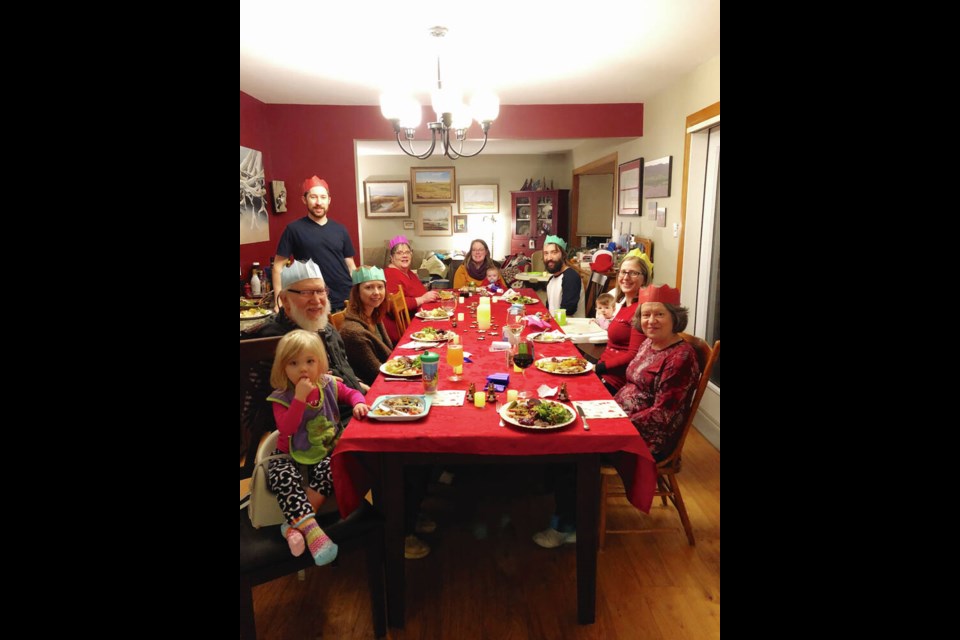It’s Christmas, and a time for extremists of every stripe to express their preferences for how we should deal with a 2,000-year-old celebration — or not.
There is some evidence that the so-called U.S. “War on Christmas” has found little, if any, welcome in Canada.
Christmas in Canada has managed to survive real or imagined secular attempts to keep the annual December solstice holiday free of nativity scenes and “Merry Christmas” greetings.
Nearly three-quarters of Canadians told Ipsos-Reid pollsters recently that they view this as the Christmas season, not the “holiday season,” and they wish one another “Merry Christmas” rather than the more generic “happy holidays.”
Which leads us to the annual and always controversial question about nativity scenes and Christian carols in public schools, especially those with a multicultural student body.
The issue always tests the ability of teachers and administrators to make decisions about how to handle it in everybody’s best interests.
Students in the Vancouver School District, for example, speak more than 22 languages in their homes, predominantly Chinese, Tagalog, English and Vietnamese. And those families follow a range of religions, including Sikhism, Hinduism, Catholicism, Protestantism, Islam and Buddhism.
Yet the majority of schools will still, despite vocal opposition from the occasional parent, hold traditional Christmas concerts, set up Christmas trees and put “Merry Christmas” posters inside and sometimes outside the school.
Many schools also organize a broad spectrum of cultural celebrations, not just Christmas, by assigning different countries or regions to each classroom. Students then complete projects related to that culture and share their work at the event.
If kids are really curious about how and why over two billion people in more than 160 countries around the world celebrate Christmas Day in different ways, there are numerous websites that illustrate how Christmas is celebrated in various countries — again the message being that despite all the bad news, joy exists everywhere at Christmas time.
Canadian child and family psychologist Carla Stern makes the case that because we live in an era of 24-hour news coverage, it is more likely than ever before that children will come across disturbing international news content that, suggests Stern, makes the traditions of family Christmas all the more important.
Christmas with kids should be all about family traditions of whatever origin “that provide stability and provide a sense of safety, security and comfort,” she says.
Those family Christmas traditions, based on cultural traditions, can bring kids a stabilizing sense of hope, wonder, magic and joy, says Stern.
Most pediatric psychologists agree that Christmas with (and not just for) kids is a time to slow down, share Christmas movies and music, and decorate a tree together, especially for the children of a busy family with both parents working.
StatCan says the number of Canadian families with two employed parents has almost doubled in the last 40 years — from one million to 1.9 million families.
That makes Christmas an even more important family time — a time to revisit the feeling of belonging to something bigger and more reassuring than the madness of the world of the 24-hour news cycle.
Child psychologists remind us that the Christmas celebration is an opportunity to revisit family values, be they as simple as the notion that giving, especially to Canadians in need, is more satisfying than receiving, or the simple pleasures of eating together around a table.
Family conversation might include asking kids what conclusions they draw from the fact that every year on Dec. 25, around 80% of the world’s countries celebrate a public holiday.
So maybe it’s time for all the adults to take a deep breath and ignore, if possible, the crass commercialization and political opportunism the season seems to generate, and demonstrate for our kids that Christmas in our culture can be what we need it to be — a time when we can, however briefly, hope for peace on Earth and goodwill to all.
gfjohnson4@shaw.ca
Geoff Johnson is a former superintendent of schools.



